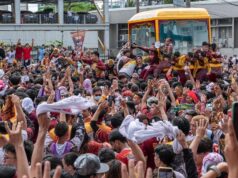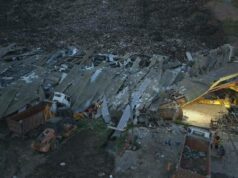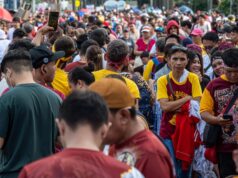Davao City launches ‘Peace Economy’ in Paquibato to address insurgency
DAVAO CITY formally launched its “Peace Economy” program last week in Paquibato, a remote district known as one of the strongholds of the communist New People’s Army (NPA). “It is rooted in equality and fairness in partnerships and builds a bridge between producers, the business sector, civil society and government. It increases connectors among people and communities. It builds peace,” city government peace adviser Irene Santiago said during the launch held at the Ateneo de Davao University. Mayor Sara Duterte-Carpio, in a message read by Councilor Mary Joselle D. Villafuerte, said peace economy is a model of development that aims to get all sectors involved in “wealth sharing” alongside the improved delivery of government services. Barangay Chairman Jessie Areja of Malabog, the pilot village in Paquibato, said the program has helped their vegetable farmers increase income through a partnership with Helen’s Farm of homegrown NCCC Group of Companies, which is involved in retail distribution, shopping mall and supermarket operations. “Since the start two months ago, Peace Economy has had a major impact on us because middlemen used to give our farmers very low prices,” Mr. Areja said in Filipino. “Tomatoes, for example, our farmers used to sell it at P10 per kilo, but now through Helen’s Farm, it is P25 per kilo,” he said in an interview. Ms. Duterte said the program will need more partners and could eventually be expanded outside the city. The Paquibato District covers about 27% of the city’s over 2,400-square kilometer land area. It is also home to the ancestral domain of the Ata indigenous group. “Many adults (in Paquibato) talk about not knowing anything else but gubot or violent conflict since the ‘60s under the Marcos martial law with atrocities committed by both the military and the New People’s Army,” Ms. Santiago said. — Maya M. Padillo



